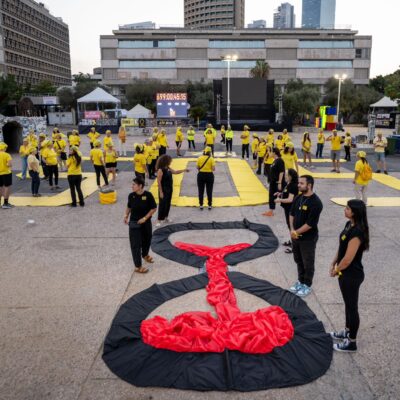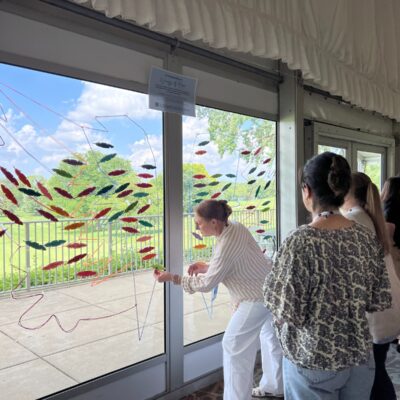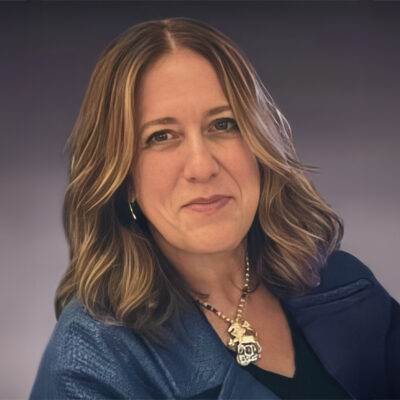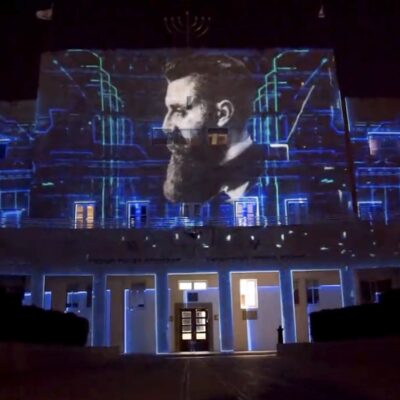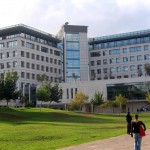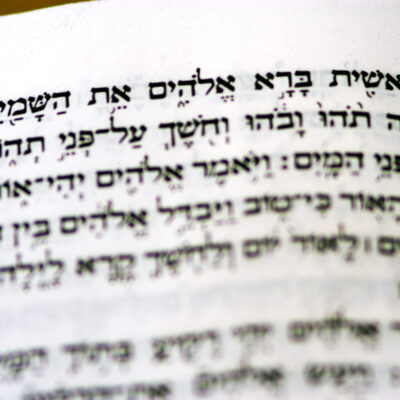Opinion
Confronting Our Biases

By Casey Cohen
Last week, a group of 20- and 30-somethings gathered together at Wise Sons Jewish Delicatessen in San Francisco’s Mission District for the first-ever (and sold-out) Tawonga Social Justice Seder.
Facilitated by leaders from Tawongans Organizing for Racial Justice (TORJ) and Tawonga’s Young Alumni Board, this was an opportunity to celebrate Passover with a self-reflective, progressive twist – through the lens of racial justice and liberation today for communities of color.
“This was my first time organizing on these issues with my own community, and it felt really special,” said Daniele Fogel, a Tawonga alumnae and one of the seder facilitators from TORJ, a grassroots group of young adults in the Tawonga alumni community established in 2014. Daniele teaches predominantly students of color at Frick Impact Academy in East Oakland. “As Jews, we sit together and retell our collective history on Passover, with the theme of liberation. This was the perfect opportunity to bring it to our current day and age to talk about our role as a people with a history of struggle and liberation, thinking about our responsibility within modern day struggles of liberation.”
The 40 participants in attendance – mostly Tawonga alumni and their friends or partners – enjoyed epic Wise Sons brisket, matzah ball soup and actually tasty gefilte fish. They also followed along in a Haggadah written by Jews for Racial & Economic Justice (JFREJ) (coincidentally co-written by Tawonga alumnae, Robin Blanc). Throughout the evening, they broke out into smaller groups to explore themes of inequality as they related to the story of the Exodus, returning back to the larger group to share out and reflect. Like many progressive Jewish homes today, the seder plate that night included several newer additions like a coffee bean to represent the bitterness of modern slavery, an orange for LGBTQ rights and an olive for solidarity with the Palestinian struggle.
“It felt like people were really engaged. I saw a lot of nodding,” Fogel said. Generally representative of the larger Tawonga community, participants were mostly white Jews. “We have been afforded privilege due to a variety of factors, and yet we’re also in this hidden minority, aware of the threat of persecution due to our history. Given our background, it is especially important to be having these conversations and to be facing our biases,” said Fogel. “It’s hard to do, but this is where racial justice becomes possible.”
Amanda Martin, a TORJ member who co-facilitated the seder and who works as a therapist, stressed this point as well. “As white people, we are socialized to be silent around issues of racism,” Martin said. “Part of the evening was to unlearn that value, and the hope is to continue unlearning that silence.”
Both Martin and Fogel expressed excitement that Camp Tawonga, a long-time leader in promoting LGBTQ and gender equality issues, is starting to take steps to prioritize racial justice in our work. In 2015 and 2016, TORJ leaders facilitated workshops at Tawonga’s In-Service training for 200 summer staff, unpacking unconscious biases around racism and how to navigate these issues in the Camp setting with campers and with each other. Tawonga hopes to bring TORJ back for our 2017 training season as well.
Martin observed that, “A lot of people are already involved in these issues in our community, and I see an eagerness to engage, and to do it among familiar communities in order to have the safety of exploration.” Participants discussed methods of holding each other accountable to stay engaged and active in the community around social justice.
Facilitators also highlighted the importance of white middle and owning class communities sharing financial resources with communities of color, acknowledging the institutional circumstances that have afforded these groups greater access to wealth and financial privilege. With this in mind, a tzedakah jar was passed around at the end of the night, raising over $300 for Healing Clinic Collective, a nonprofit in Oakland providing healing sessions to especially traumatized populations in the Bay Area.
The seder concluded with, “L’shanah haba’ah b’cheirut!”…“Next year in freedom!” Indeed, Tawonga looks forward to making this social justice seder an annual tradition, hopefully with progress along the way to celebrate.
**
To stay informed on related community events with TORJ, join the Tawonga Young Alumni Facebook group.
Mira Stern, a TORJ member and teacher at Leadership High School in San Francisco, also co-facilitated the seder.
Tawongans Organizing for Racial Justice (TORJ) is a group of Tawonga alumni committed to organizing our community around racial and social justice issues. TORJ strives to connect Judaism and the core values of Tawonga to collectively increase justice within and outside of Camp. The group was established in 2014, with the leadership of an advisory committee including members Charley Brooks, Kiki Lipsett, Jonathan Malta Weingard, Amanda Martin, Kaylie Simon, Mira Stern and Sara Tiras.
Casey Cohen is Camp Tawonga’s Communications Director.

